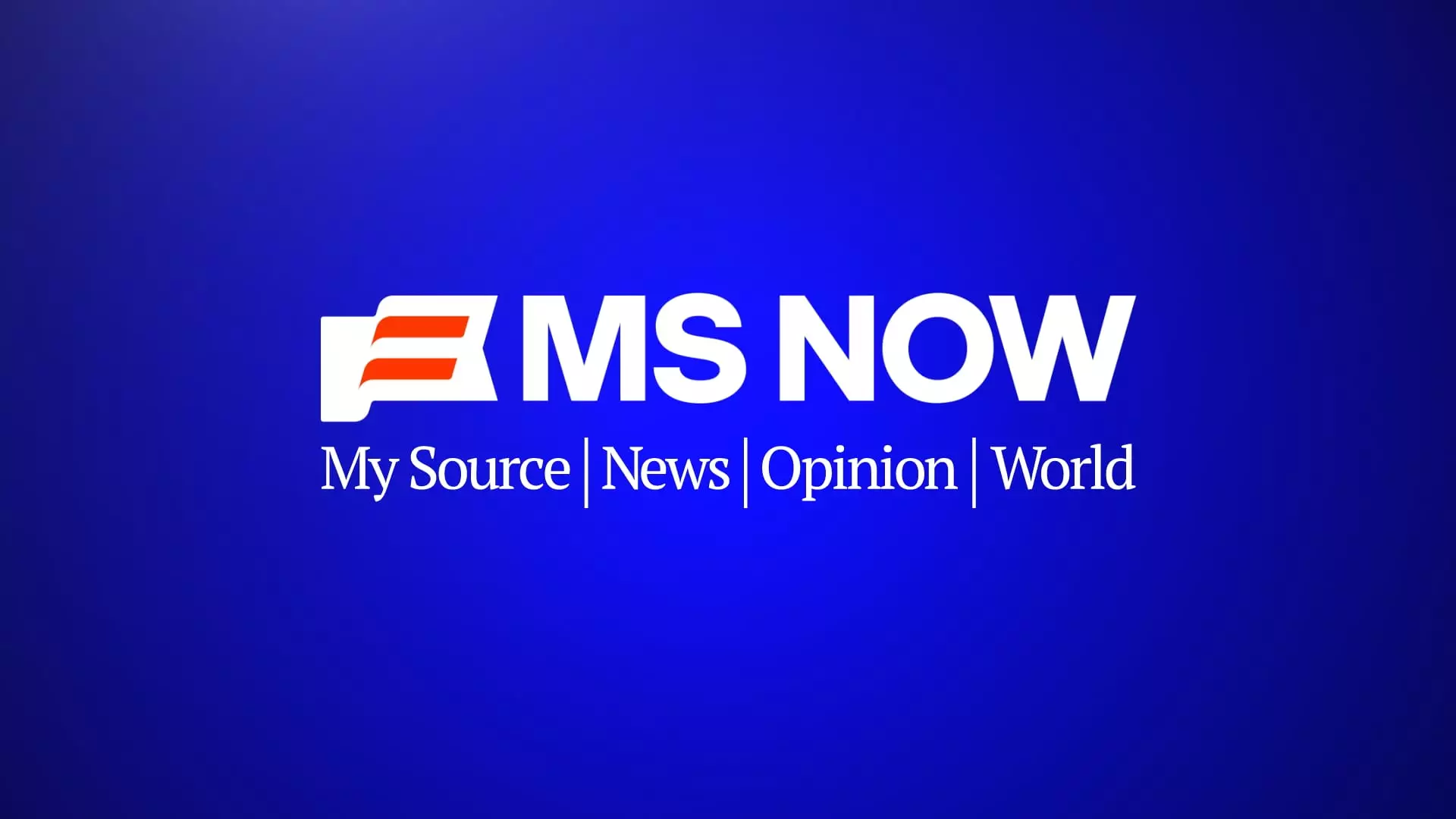In a move that has surprised many within the media industry, MSNBC is set to shed its long-standing branding identity—most notably, the iconic peacock logo—and adopt a new name: My Source News Opinion World, or MS Now. This radical rebranding reflects broader strategic shifts at Versant, the newly independent media conglomerate eyeing a fresh, independent identity post-separation from NBCUniversal. However, beneath the surface of this bold move lies a complex question: Is this simply a cosmetic change or a meaningful maneuver designed to redefine the network’s position in America’s competitive media landscape?
What must be understood is that the renaming aims to differentiate MSNBC more clearly from its NBC News sibling. For decades, MSNBC has walked a delicate line—balancing traditional journalism with a more opinion-driven approach. Rebranding offers a way to reinvent the network’s identity without altering its core editorial stance, as the network’s leadership emphasizes that programming and journalistic direction will remain intact. Yet, this raises doubts about whether superficial branding repositioning alone can address the deeper challenges facing legacy media outlets in a rapidly evolving digital era.
A Strategic Rationale: Independence in a Polarized Climate?
NBCUniversal’s decision to rebrand MSNBC signifies more than just marketing; it signals a desire for the network to forge a distinct path, free from the influence of its corporate parent. By establishing MS Now as a standalone entity, Versant ostensibly seeks to carve out an independent voice, one that can navigate the increasingly partisan political landscape with greater agility. The move indicates an acknowledgment that in today’s fractured media environment, brand clarity — and perhaps a more centrist, balanced approach — is paramount to retaining credibility and audience trust.
However, critics might argue that this rebranding smacks of window dressing, an attempt to mask ongoing ideological extremes under a new banner. The name “My Source News Opinion World” carries a loaded connotation—it suggests a platform that’s opinion- and source-driven, rather than strictly impartial. Whether this shift will actually foster more balanced reporting remains questionable. Yet, the emphasis from leadership on maintaining the essence of the network’s journalistic commitments hints at a recognition that credibility and trust are non-negotiable in a media environment rife with skepticism.
Rearranging the Landscape: New Logos, New Strategy, but Same Content?
The anticipated visual overhaul—new logos for MSNBC, CNBC, and other Versant brands—serves as a powerful symbol of transformation. Branding is inherently strategic: it communicates values, signals change, and influences consumer perceptions. But the question looms: Will the rebranding translate into a material difference in content and approach? Or is this merely a cosmetic facelift aimed at attracting a new generation of viewers or repositioning against digital disruptors?
The hiring spree—bringing on about 40 journalists from outlets like CNN, Bloomberg, and Politico—is indicative of a broader effort to fortify the network’s journalistic credibility and establish a distinct, modern newsroom. This strategic investment points to an ambition to be more than a partisan echo chamber; it aspires to serve a center-right, liberal-conservative audience seeking serious reporting and nuanced analysis. Whether these efforts succeed depends heavily on the network’s ability to resist ideological echo chambers and provide balanced, fact-based reporting—something that remains to be seen given current media trends.
The Future of MSNBC: A Test of Brand and Content Coherence
As Versant prepares for its upcoming public offering and the rollout of its rebranded networks, questions of authenticity and strategic coherence remain. Will adopting a new name and visual identity serve as a catalyst for meaningful change, or will it fracture the legacy audience that values MSNBC’s familiar tone? The attempt to set the network apart from NBC News—while maintaining its core mission—reflects a pragmatic acknowledgment that credibility in the current political and media environment depends on perceived independence.
Furthermore, the decision not to rename CNBC, despite its shared branding history, underscores a nuanced approach to differentiation. CNBC, with its focus on business news, occupies a different niche—one less entangled in the polarization that challenges MSNBC. This selective branding shift suggests a calculated move to preserve the distinct identities necessary for each network’s survival and relevance.
Ultimately, the rebranding effort embodies a broader strategic gamble. Will it breathe new life into MSNBC and establish it as a truly independent, credible news source? Or will it merely serve as a facade masking ongoing ideological divides and content limitations? Only time will reveal whether this bold move leads toward genuine renewal or is destined to become just another chapter in the ongoing narrative of media transformation—where appearance often matters more than substance.

